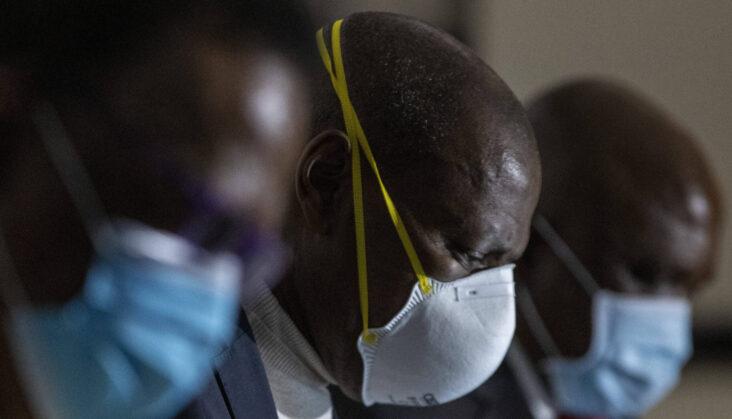Africa-Press – Lesotho. Covid-19 is a savage blow to our way of life.
Not necessarily because it has fundamentally altered our social reality, but because it strips away the welcome distractions that shields us from the rawness of many aspects of that reality.
Because all of us are so damned scared and anxious, conspiracy theories, alternative facts, folk science, and fringe beliefs that would ordinarily not get more than a tiny fraction of our saturated attention, now flood news bulletins and timelines.
Africa isn’t any more susceptible to fringe beliefs than anywhere in the world. But the tendency of such beliefs to seem as though they are on the verge of overwhelming mainstream/traditional media appear more pronounced now. Social structure has a major part to play.
In many parts of the world, a religious leader’s decision to throw his or her weight behind the theory that 5G technology is somehow responsible for the emergence of COVID-19 wouldn’t induce a sudden crisis of social knowledge.
Religious leaders are not part of the mainstream knowledge system in these places. In Africa, on the other hand, chiefs and kings, self-styled bishops and priests, and a weak academic community that rarely commands the prestige accorded to research elsewhere, results in a blurring of the line between “fringe” and “mainstream”.
I still refuse to accept the theory, however, that conspiracy theories pose a greater risk in Africa than elsewhere. True, their impact on such areas as mass immunisation, digital connectivity, infectious disease spread and reproductive health can be serious, but not any more than a vast number of other factors.
I am of the view that a general theory of how conspiracy theories and fringe beliefs take root apply universally and that any antidote to any harm they may pose has to be generic.
There are three main drivers of the tendency to accept explanations from the fringe rather than from the mainstream: Mainstream life increasingly operates against all these deep-seated desires.
Knowledge has become so fragmented and so specialised that the workload involved in integrating enough fragments of insights from different domains to form a holistic picture about virtually anything, has become really big, attracting blowback.
In the now-famous narrative of 5G and its viral genesis potential, for instance, one needs the patience and will to get to the bottom of the issues alone: to go back to the original Bill Curry “memo” in 2000 where petri dish experiments appeared to show that elevated radio frequency (RF) radiation causes harm to human cells.
Curry, a physicist, has continued to investigate what he believes are correlations between telecom antennae and radiation sickness.
The typical scientific knowledge-building process, consisting of attempts to reproduce his results and efforts to debunk them, would eventually show that the human skin acts as a shield for the vast proportion of radiation humans are exposed to and that telecoms-related radiation had intensities far too low to cause any harm to human tissue, even if a few scientists remain somewhat more ambiguous.
To understand most of the caveats from study to study, even from a purely informed layperson perspective, is an onerous burden – one that is practically impossible to bear for the 99.999% of people who do not specialise in any of the dozens of highly related fields.
In the 5G-COVID-19 case, the diligent inquirer might come across a study linking RF radiation to cataract and other forms of eye damage in one mammalian species but not another, or a study showing that high-frequency radiation can influence viral mutation (which may change the nature of the viruses) or not; or one showing that the low doses of radiation used in some medical imaging techniques can cause mutations in cells cultured in petri dishes.
To pursue the separate but interconnected processes of scientific validation and refutation, whereby single studies mean little – and clusters of studies that become dominant over time dictate the scientific consensus – requires far more analytical grit than the average busy citizen can muster.
Even professionals are biting their nails over the demands of rigour.
Equally hard is the mental discipline to accept that scientific truth is like a heatmap of expert revelations with an epicentre that may move with time.
Thus, if the legitimate concerns about compliance with precautionary standards for sitting of telecom masts, which are constructed on the basis that some level of exposure to RF radiation can be harmful, are factored into the mix, the process of debunking fringe theories about telecom-related radiation becomes far more nuanced than mainstream reassurances typically make it out to be.
Here is where conspiracy and fringe theorists step in. They provide an integrative perspective far simpler and more conclusive than those available from mainstream meta-studies and literature reviews by reputable scientists.
A fringe theorist with a list of professional credentials in one of the many intersecting disciplines to create the expert consensus on a matter is even more effective, but any sufficiently effective communicator can do it too.
These false syntheses have virality because they offer holism at low cost. The false synthesis syndrome they induce is infectious for anyone who does not have the trained immunity induced by other factors. One of those factors is usually practicality.
Even if one accepted the hotchpotch of material usually assembled to link 5G to COVID-19, the fact is that there are few alternatives to these technologies and many people enjoy the benefits of high-speed internet on the go.
It is very likely that the vast majority of people who accept the mainstream theories do so not because they have made significant effort to integrate the basic pieces of evidence themselves or that they properly understand how to interpret mainstream consensus on scientific fact and theory, but simply because it is the more practical thing to do.
It is a sobering thesis that becomes very evident when one surveys overall loyalty to mainstream scientific stances. Take GMOs for instance. The standard scientific logic denying a link to cancer is indistinguishable from the one denying any link between COVID-19 and the effects of RF radiation on human health.
But far fewer people, especially in Europe, are willing to let go of fringe theories suggesting such a link because there are many practical alternatives to GMO food.
In fact, fringe theories can be constructed in ways that simply operates in parallel with mainstream ideology without seeking confrontation. The author of this article is a fervent believer in organic food even though the scientific evidence that there are any benefits is scanty.
Many vegans and vegetarians hold beliefs about links between meat/dairy and all manner of human diseases as tenuous as beliefs about the impact of 5G.
Yet many vegans are scientists themselves. False Synthesis Syndrome is thus properly viewed as the dominant orientation of humankind in our search for “personal theories” of holism.
Whenever busy people, in their bounded rationality of limited knowledge and experience, are called upon to have an opinion on any subject, their human instinct is to join up their views on the novel phenomenon with some kind of integrative philosophy, or at least grand theory, of reality.
A great many of the world’s religions are built on this. A great many personal beliefs of how the economy works and how the political process is supposed to address individual policy preferences are also anchored on false synthesis.
It is thus nonsense to talk about a “solution” to conspiracy theories or fringe beliefs whether for Africa or elsewhere. Or to believe that wider scientific literacy in Africa can somehow suppress them. They are bound with our makeup as humans and they arise from deeper subconscious needs in relation to how we acquire knowledge.
Opinion surveys around the world are highly consistent in showing the uniformity thinking of prevalence, regardless of educational level.
What rational maximalists (those who seek to expand the bounds of their rationally acquired knowledge) can seek to do, is focus on a utilitarian ethic of harm avoidance.
In that sense, fringe theories about the harms of 5G, if all they do is keep some people on 4G (which was marketed as a 100-fold leap from 3G compared to 5G’s 10-fold leap from 4G ) are hardly cause for great concern.
On the other hand, fringe theories about vaccines, which can lead to the resurgence of diseases, as we are seeing with polio in parts of Nigeria or Pakistan, are probably more dangerous and our commitment to suppressing them must be driven by aforesaid ethics of lowering harm. Acting in the name of preserving the integrity of knowledge is, as far as motivations go, somewhat naïve.
For More News And Analysis About Lesotho Follow Africa-Press






